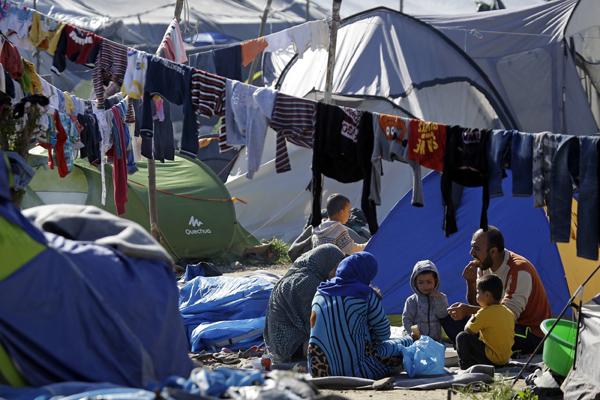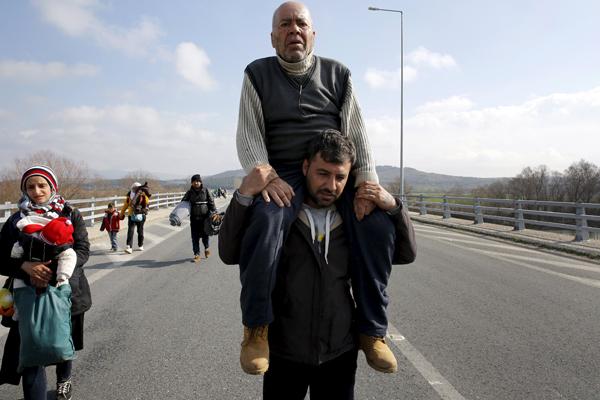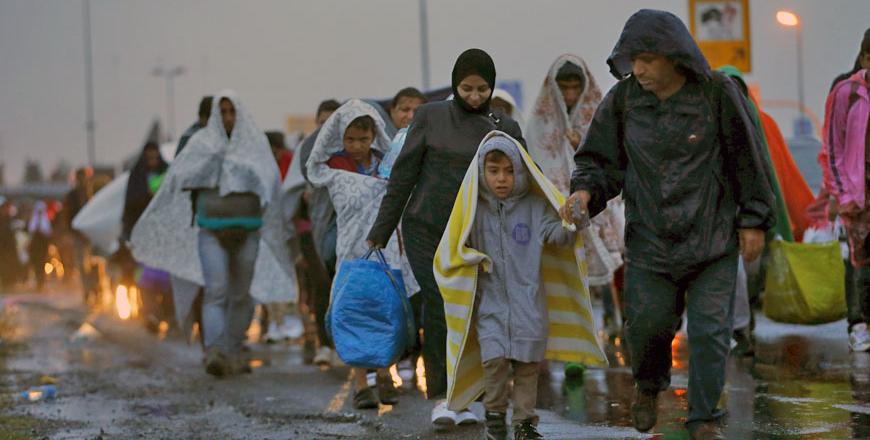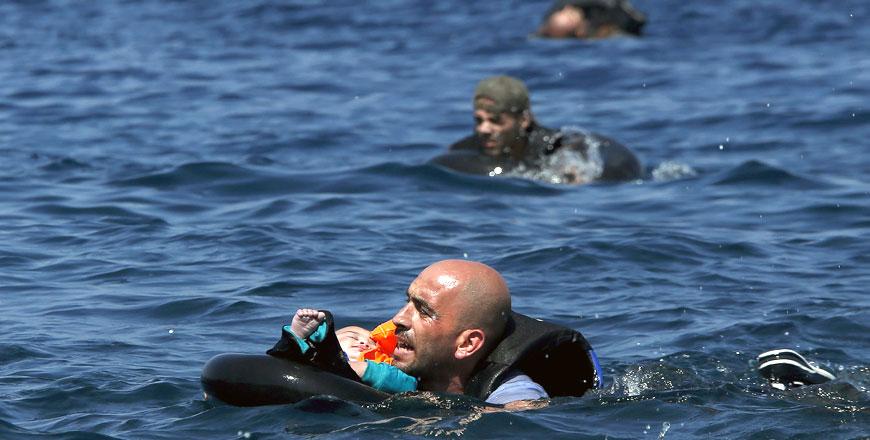You are here
UN chief slams ‘increasingly restrictive’ EU refugee policies
By AFP - Apr 28,2016 - Last updated at Apr 28,2016

A family of migrants gather outside their tents at a makeshift camp in the northern border point of Idomeni, Greece, Wednesday (AP photo)
VIENNA — UN chief Ban Ki-moon hit out Thursday at what he called "increasingly restrictive" refugee policies in Europe as the continent faces its worst migrant crisis in decades.
Ban also said he was "alarmed by the growing xenophobia here" and elsewhere in Europe, in a speech to the Austrian parliament.
"I am concerned that European countries are now adopting increasingly-restrictive immigration and refugee policies," Ban told lawmakers.
"Such policies negatively affect the obligation of member states under international humanitarian law and European law. Divisiveness and marginalisation hurt individuals and undermine security."
His comments came a day after the Austrian parliament adopted one of Europe's toughest asylum laws, as the country's centrist government struggles to halt the surging far-right whose candidate won the first round of presidential polls on April 24.
The hotly disputed legislation allows the government to declare a "state of emergency" if migrant numbers suddenly rise and reject most asylum seekers at the border, including those from war-torn countries like Syria.
If the mechanism is triggered, border authorities will only grant access to refugees facing safety threats in a neighbouring transit country or whose relatives are already in Austria.
Some groups including minors and pregnant women will be exempt from the rule.
The measures are similar to tough laws introduced by Hungary's right-wing government last year.
The UN's refugee agency warned on Wednesday that the legislation "removes a centrepiece of refugee protection".
But Austria insisted it had no other choice as long as "so many other European Union members fail to do their part" to stop the influx.
A progressive crackdown
More than a million people, primarily from Syria, Iraq and Afghanistan, landed in Europe last year, triggering the continent's worst migration crisis since the aftermath of World War II.
Wedged between Europe's two main refugee routes — the Balkans and Italy — Austria received around 90,000 asylum requests in 2015, the second highest in the bloc on a per capita basis after Sweden.
The influx has boosted support for the far-right Freedom Party, whose presidential candidate made it into a May 22 runoff.
The party is also leading polls ahead of scheduled general elections in 2018.
In a bid to stop the populist resurgence, Austria has erected border fences, introduced an annual cap on asylum-seekers, and pressured other countries along the Balkan trail to close their frontiers, effectively shutting the route to migrants.
It has also restricted existing asylum laws by imposing limits on the length of asylum granted to migrants and making it harder for their families to join them.
"I fully appreciate the enormity of the challenges but I trust that Austria will continue to contribute towards the EU's efforts to forge a truly cooperative approach to addressing the [migration] issues," Ban said.
Related Articles
ATHENS — More than 5,000 people were stranded at the Idomeni camp on Greece's northern border with the Former Yugoslav Republic of Macedonia
HEGYESHALOM, Hungary/VIENNA — Austria and Germany threw open their borders to thousands of exhausted migrants on Saturday, bussed to the Hun
BERLIN/BRUSSELS — Germany re-imposed border controls on Sunday after Europe's most powerful nation acknowledged it could scarcely cope with
















